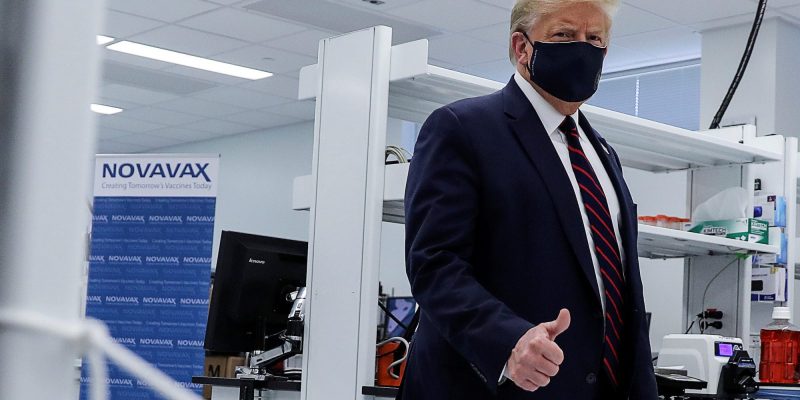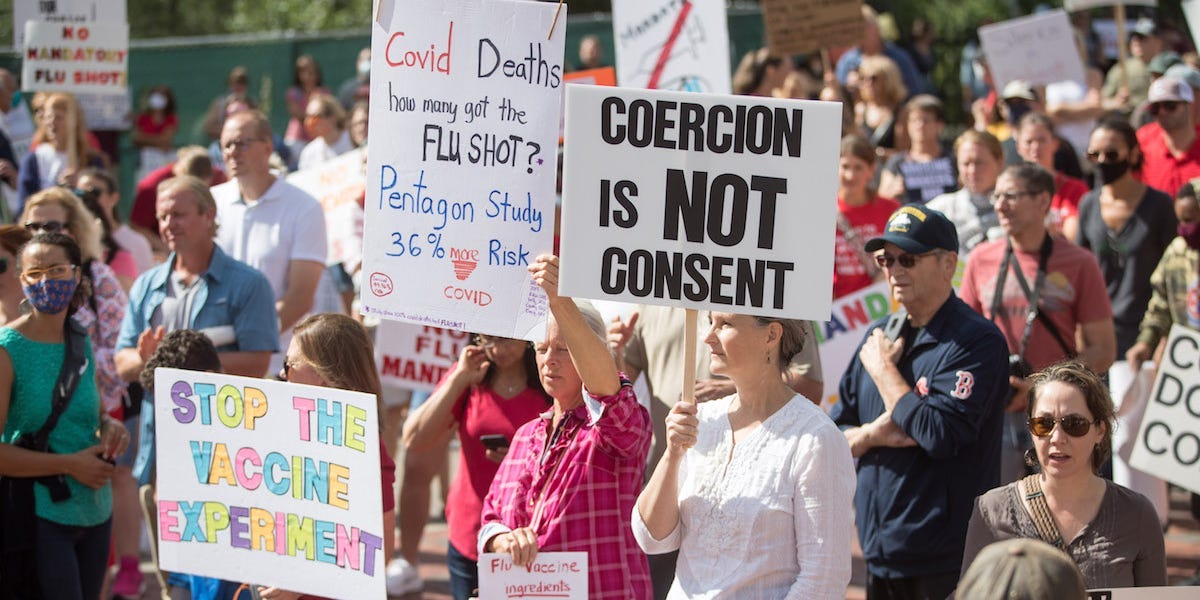- A third of Americans will not get a coronavirus vaccine, a major new international survey suggests.
- 33% of respondents in the US indicated in an Ipsos MORI poll that they would not get a vaccine for COVID-19 were it to become available.
- The most cited reason by Americans opposed to a vaccine was concern about potential side effects.
- 20% said they were opposed to vaccines in general.
- Positivity about vaccines was highest in China, where the coronavirus pandemic began. It was lowest in Russia.
- 85% of people in the UK indicated that they would get a coronavirus vaccine.
- Visit Business Insider’s homepage for more stories.
A third of Americans would not agree with taking a coronavirus vaccine, were one available, according to a multinational survey, which found the US to be one of the most vaccine-sceptical nations worldwide.
33% of respondents in the US said they “somewhat disagreed” or “strongly disagreed” with the statement “if a vaccine for COVID-19 were available, I would get it,” according to an Ipsos MORI poll for the World Economic Forum.
Just over two-thirds of respondents indicated that they would get a COVID-19 vaccine, with 32% saying they “somewhat agreed” and 35% saying they “strongly agreed” with the statement.
These Ipsos MORI findings are broadly in line with previous polls conducted by Marist Poll and Gallup which both found that 35% of Americans would not get a vaccine for the coronavirus if it were available.
Ipsos MORI also found that vaccine intent in the US was lower than the average across 27 countries surveyed. Overall, 26% of respondents across the 27 nations told the pollsters that they disagreed with the statement.
Of the 27 countries surveyed, vaccine intent was lowest in Russia.
46% of respondents in Russia indicated that they would not get a vaccine, with 24% saying they "somewhat disagreed" with the statement and 22% saying they "strongly disagreed." Russian President Vladimir Putin last month said the country had developed an effective coronavirus vaccine that he hoped would soon go into mass production.
Vaccine intent was highest in China, where the global coronavirus pandemic began. Just 3% of Chinese respondents indicated that they would not get a vaccine, with 97% suggesting that they would.
The UK also ranked highly for vaccine intent amid warnings that misconceptions and conspiracy theories about vaccines in Britain could undermine government efforts to persuade people to receive the treatment. 16% of British respondents told Ipsos MORI that they disagreed with the statement, while 85% agreed. UK Prime Minister Boris Johnson has previously described people opposed to vaccines - or "anti-vaxxers" - as "nuts."

The reason most cited by Americans who suggested they would not get a coronavirus vaccine was worry about potential side effects (60%.) Over a third (37%) said they didn't believe it would be effective, while a fifth (20%) said they were against vaccines in general. 19% said they felt they were not enough at risk to get a vaccine.
Ipsos MORI used an online survey to question 19,519 adults across 27 countries between July 24 and August 7. The margin of error for an Ipsos MORI poll of 1,000 people or more is 3.5%.
